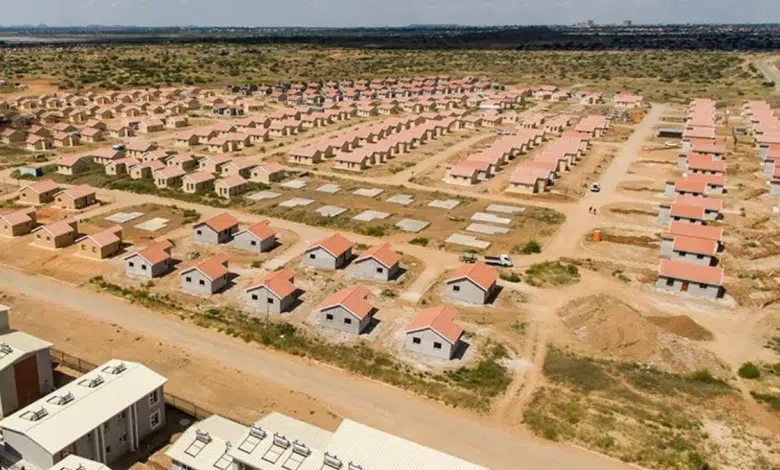Joburg Officials Urge RDP Beneficiaries Not to Sell Their New Homes

The City of Johannesburg and Gauteng Housing Department have issued a clear warning to beneficiaries of Reconstruction and Development Programme (RDP) houses. Selling these homes prematurely undermines the purpose of the government’s affordable housing initiative. Officials emphasise that RDP homes are intended to provide long-term, stable housing for low-income families. They caution against impulsive sales that could jeopardise housing security.
RELEVANT ARTICLE: Smart Tips to Avoid RDP Housing Scams in Gauteng
Understanding the Rules Around Selling RDP Houses
The government allocates RDP houses (subsidised homes) to qualifying low-income South African citizens. To protect the integrity of the programme, the law prohibits beneficiaries from selling their RDP homes within the first eight years after they receive the title deed. This rule ensures that the homes serve their intended purpose of providing affordable housing to those who need it most.
After the eight-year period, beneficiaries may sell their homes. However, a pre-emptive clause in the title deed regulates the process. This clause gives the Gauteng Housing Department the first right of refusal to purchase the property. Only if the Department declines can the owner sell the home on the open market. This measure ensures that private investors or individuals who do not meet affordable housing criteria cannot buy RDP homes.
Why Selling Early Is Discouraged
Officials stress that selling RDP houses before the eight-year mark is illegal and can lead to legal consequences. The Department of Human Settlements actively monitors such sales and may take action against beneficiaries who attempt to circumvent the rules.
Moreover, selling an RDP home prematurely can disrupt community stability. It also reduces the availability of affordable housing stock. Since these homes are subsidised and not intended for profit, early sales often do not benefit the seller financially as much as expected. Instead, they risk losing access to secure housing and may forfeit eligibility for future government housing support.
The Department’s Position and Support for Beneficiaries
The Gauteng Housing Department maintains that RDP homes should remain with beneficiaries who genuinely need affordable housing. The department does not encourage the sale of these homes. It views them as a vital resource for alleviating housing shortages.
Beneficiaries are urged to consider the long-term benefits of retaining their homes, including security and community belonging. The department also advises beneficiaries to fully understand their title deeds and legal obligations before making any decisions about selling.
Legal Process for Selling After Eight Years
When the eight-year period has elapsed, beneficiaries wishing to sell must:
- Review the title deed to understand the pre-emptive clause and other conditions.
- Offer the home first to the Gauteng Housing Department, which has the right to purchase the property at market value.
- If the department declines to buy, beneficiaries may then proceed to sell the home on the open market. They must ensure all legal requirements and conveyancing procedures are followed.
Engaging a qualified conveyancer is essential to ensure the sale complies with all legal obligations. This includes verifying ownership and clearing any liens or encumbrances.
ALSO READ: How to Legally Transfer Your RDP House into Your Name: A Comprehensive Guide
Broader Implications for Affordable Housing
The restrictions on selling RDP homes reflect a broader goal: to preserve affordable housing for low-income South Africans and prevent exploitation by speculators. Selling RDP houses too soon can lead to these homes being lost from the subsidy programme, reducing access for future beneficiaries.
Officials warn that widespread early sales could exacerbate housing instability and undermine government efforts to address South Africa’s housing backlog. Maintaining the integrity of the RDP programme is critical for social and economic stability in Johannesburg and beyond.
RDP Homes
Johannesburg officials and the Gauteng Housing Department strongly urge RDP beneficiaries to hold onto their homes for at least eight years. They also encourage beneficiaries to fully understand the legal framework governing these properties. Selling RDP houses prematurely is illegal and counterproductive to the goals of affordable housing.
By adhering to these regulations, beneficiaries contribute to sustaining a stable housing environment for themselves and their communities. The government remains committed to supporting low-income families through the RDP programme, ensuring access to secure, affordable homes for years to come.



